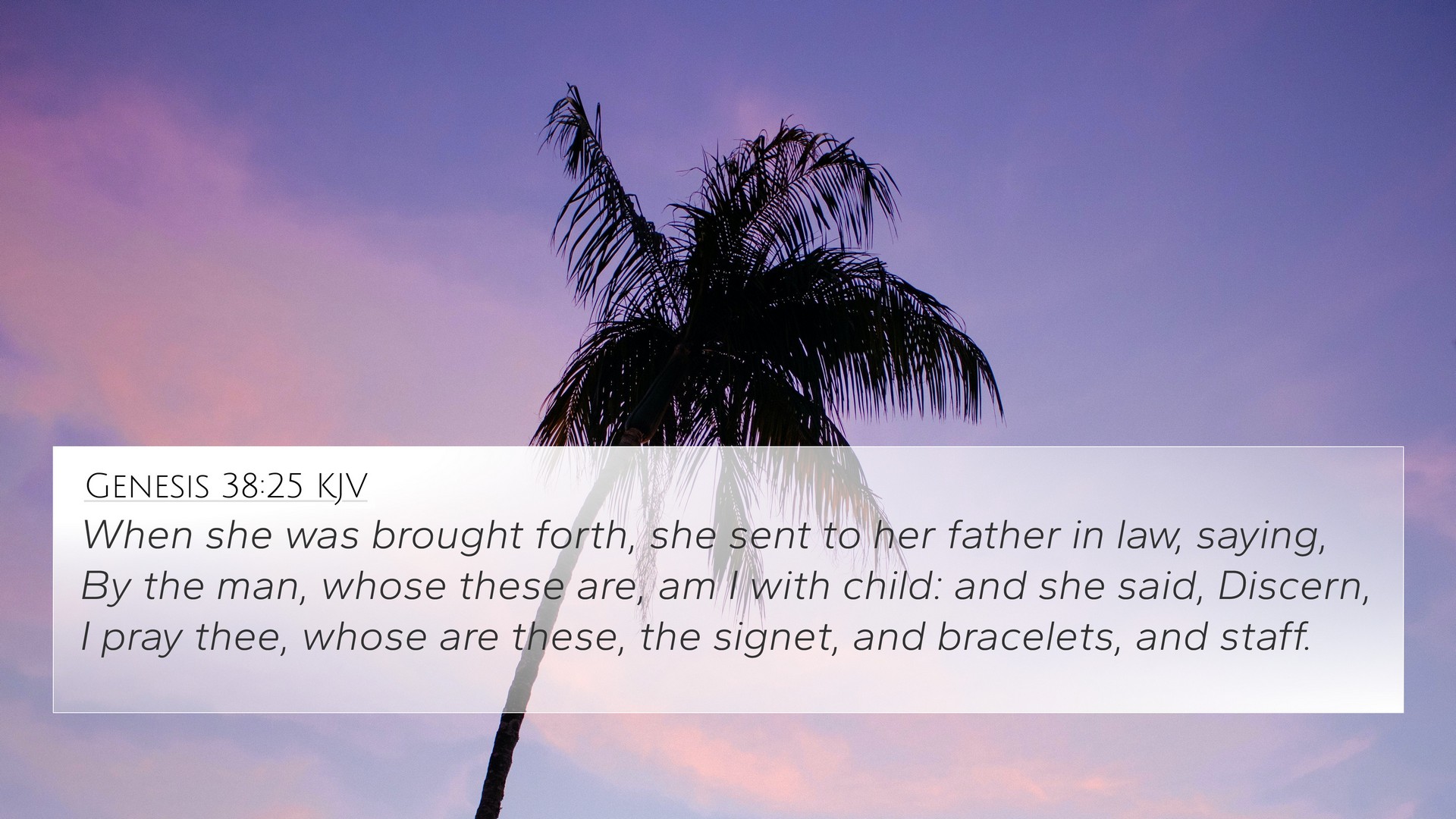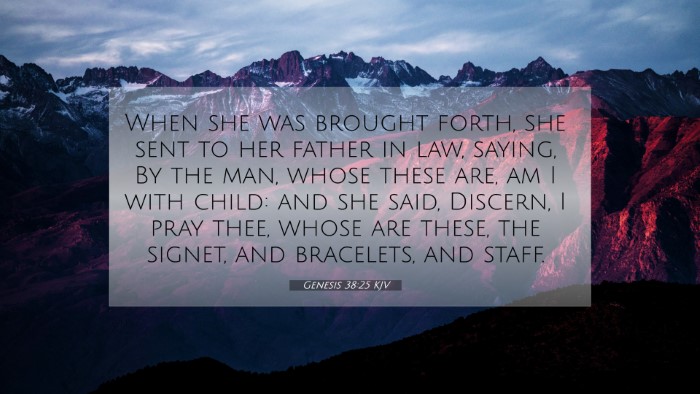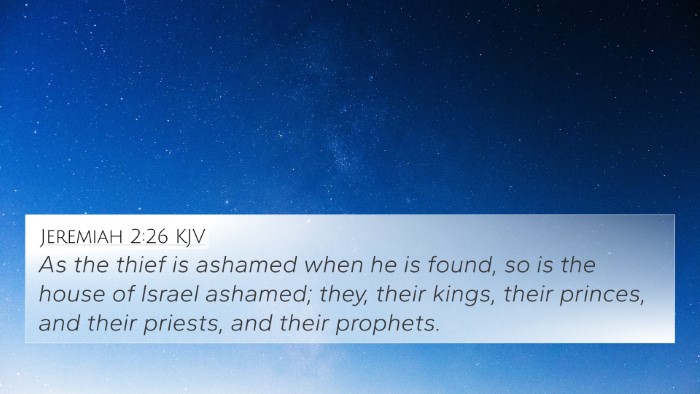Understanding Genesis 38:25
The verse captures a poignant moment in the narrative of Judah and Tamar, emphasizing themes of justice, deception, and divine sovereignty. Here we will explore various commentaries to extract deeper meanings.
Matthew Henry's Commentary Insights
Matthew Henry emphasizes that Tamar, by producing Judah's signet, cord, and staff, demonstrates her rightful claim over Judah. This act reveals Judah's hypocrisy as he had condemned her without recognizing his part in her predicament. Henry suggests this teaches us about the seriousness of our actions and the consequences they bear.
Adam Clarke's Commentary Reflections
Adam Clarke highlights the significance of the items Tamar presents to Judah, stating that they serve as undeniable evidence of paternity. Clarke notes that Judah's admission of guilt reflects a transition from harsh judgment to a redemptive realization. This serves as a reminder of God's ability to weave justice from human failures.
Albert Barnes' Analysis
According to Albert Barnes, this incident underscores the importance of personal integrity and the weight of familial responsibilities. By acknowledging his role, Judah exhibits a moment of confession and recognition of his sins. Barnes asserts that this moment foreshadows the eventual restoration and blessings that come through the lineage of Judah.
Thematic Insights
This verse not only comments on a specific case of familial deceit but resonates with broader themes throughout the Bible:
- Deception and Truth: The contrasting actions of Tamar and Judah highlight the complexities of human relationships.
- Justice and Redemption: The acknowledgment of sin leads to subsequent redemption, reflecting God’s mercy.
- Divine Sovereignty: God's providence is evident in the lineage of David through this scenario, showing how He guides history through human choices.
Cross References for Genesis 38:25
Genesis 38:25 can be cross-referenced with the following verses:
- Deuteronomy 22:22 - discusses the consequences of adultery.
- Genesis 37:18-20 - recounts the brothers' betrayal of Joseph, highlighting themes of deception.
- Matthew 1:3 - where Tamar is mentioned in the genealogy of Jesus, signifies her importance in redemptive history.
- 1 Chronicles 2:4 - further details on Judah and Tamar's lineage.
- Hebrews 11:31 - commends the faith of Rahab, drawing parallels between women in difficult situations.
- Luke 20:34-36 - Jesus discusses the resurrection and relationships in heaven, providing a broader context of justice.
- Proverbs 28:13 - emphasizes the importance of confessing sin for forgiveness.
Conclusion
Genesis 38:25 serves as a profound narrative that connects many themes and thus invites readers to contemplate the interplay of justice, redemption, and divine providence. Comprehending the complexity of human relationships through the lens of this verse promotes a deeper understanding of Biblical principles.
Exploring Cross-References
For readers looking to delve further into the theme of deceptive narratives and eventual justice in the Bible, the use of Bible concordance tools can illuminate various connections. Implementing a systematic approach through a Bible cross-reference guide can reveal how verses like Genesis 38:25 resonate across both the Old and New Testaments.
Utilizing Bible Cross-References
To effectively employ cross-referencing Bible study methods, one can start by identifying similar narratives and moral lessons in various scriptures, thus enhancing understanding:
- Look for similar themes of deception in the stories of Abraham and Sarah.
- Identify how familial relationships are portrayed in both Genesis and the Gospels.
- Compare the teachings of Jesus regarding sin and judgment to the actions of Judah.









